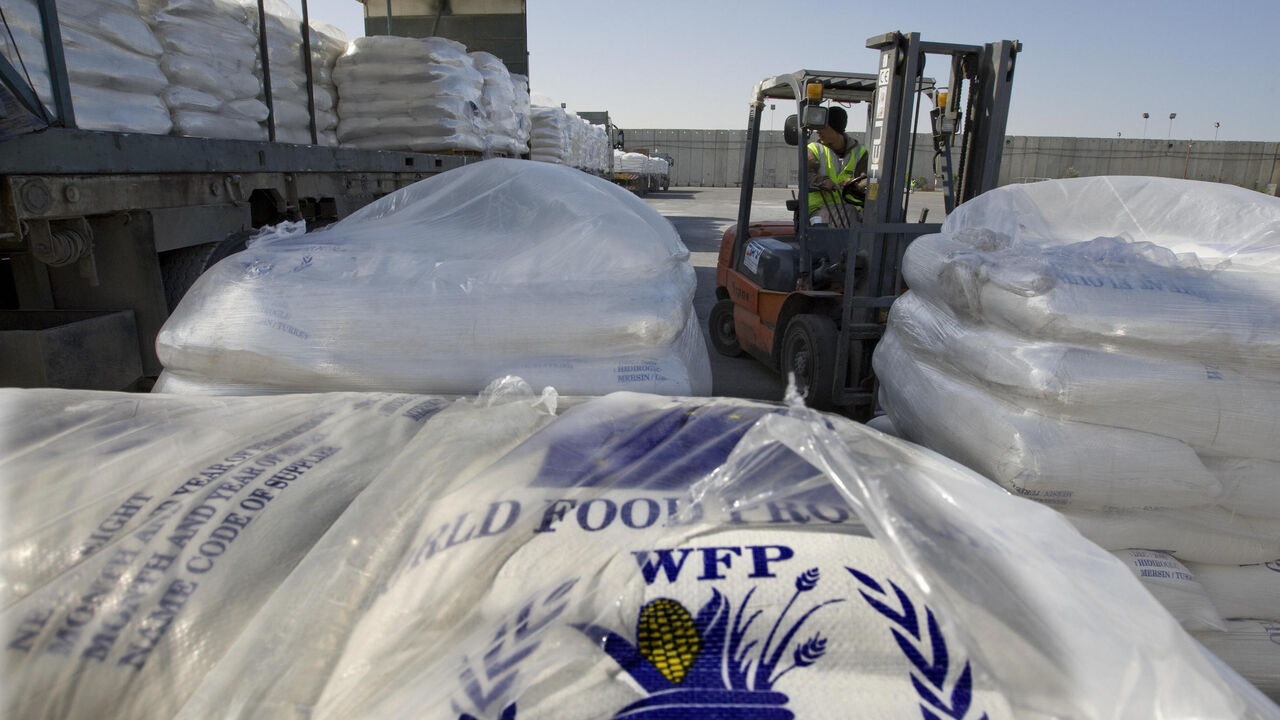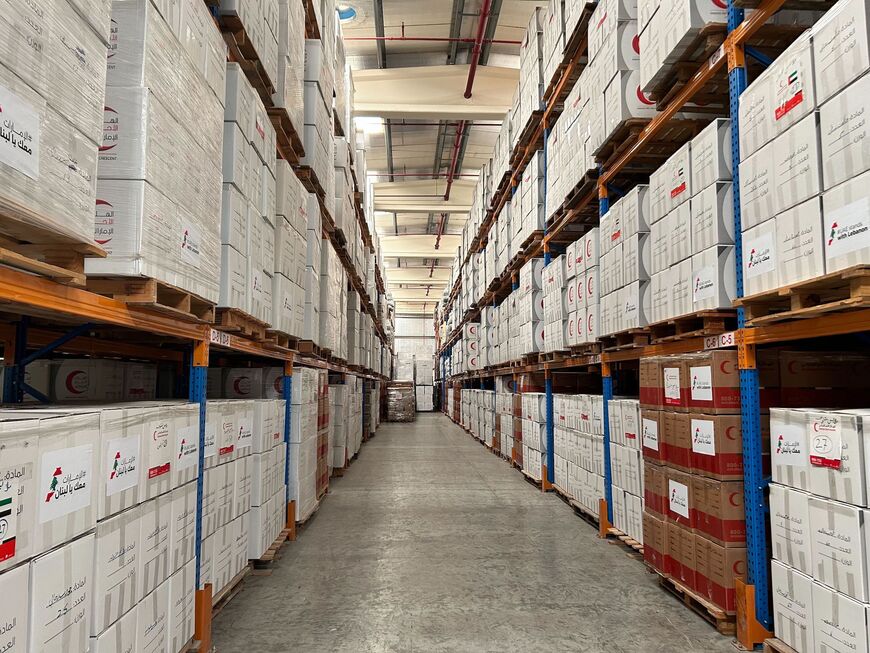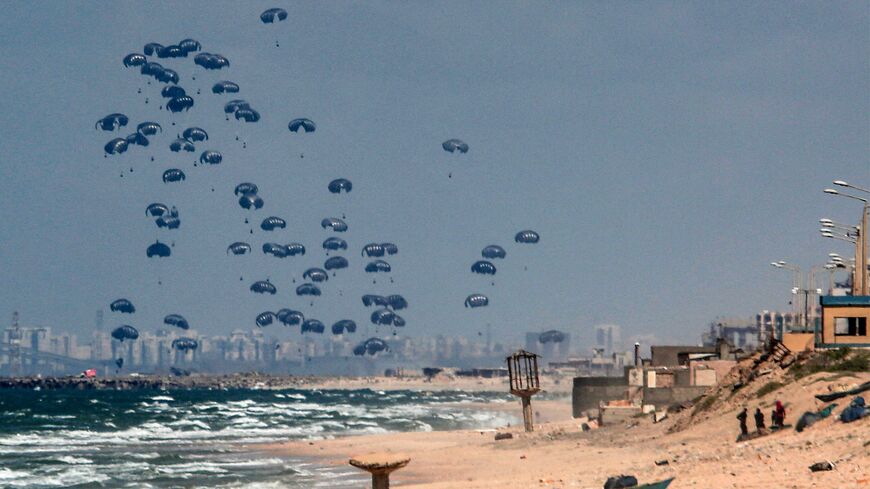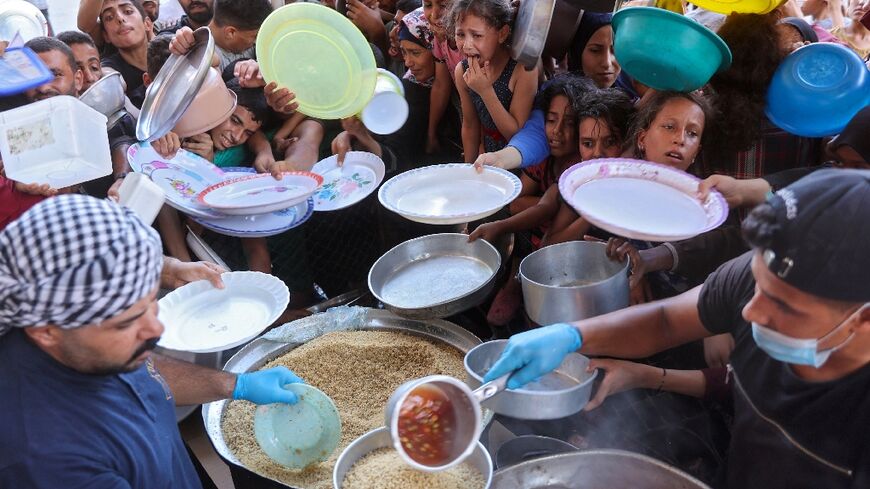WFP to send aid ship to feed displaced in Lebanon
The UN food agency is raising the alarm over food insecurity and a harsh winter in the Levant as the conflicts in Gaza and Lebanon continue.

DUBAI — The World Food Programme plans to send an aid ship to Lebanon in collaboration with the United Arab Emirates as the latest escalation and approaching winter threaten to plunge thousands of displaced residents into a food crisis.
The ship, which will sail from Egypt to Lebanon, will meet critical food needs, Stephen Anderson, WFP representative to the Gulf Cooperation Council, told Al-Monitor.
While a date has not been set, the ship is likely to sail before the end of the year, he said.
There are typically "more nutritional needs" when the weather gets colder, Anderson said. The WFP is modifying rations as well as procuring blankets and shelter materials in coordination with partners to dispatch to Gaza and Lebanon.
The UN agency is currently providing daily food for around 160,000 people and plans to scale that figure up to 250,000. The agency could expand operations to provide up to 400,000 refugees displaced in Lebanon as well as Syria.
Around 400,000 people have fled to Syria over the last two weeks following escalation in the country's conflict with Israel, according to Lebanese state authorities.
Rising food insecurity, famine
Gaza could be facing famine, Anderson said.
The UN said in June that the situation in Gaza was "catastrophic" and there was a "high and sustained risk of famine" throughout the Strip following continuous Israeli bombardment that has left more than 42,000 dead to date.
The United Nations said earlier this year that around 2.13 million people in the beleaguered enclave faced "high levels of food insecurity," with nearly 677,000 facing "catastrophic food insecurity."
In Lebanon, Anderson said, "people lost their household and productive assets, and they need life-saving assistance just to support their daily needs."
Around 2.1 million people have been displaced in Lebanon following Israeli airstrikes targeting Hezbollah leaders and strongholds. Many residents from the south of the country have flooded the capital Beirut or have fled into neighboring Syria to escape the airstrikes.
"But in Gaza, it's more. In Gaza, people are completely cut off, and there's no other ways of assisting. So really, humanitarian assistance is a lifeline," he added.
Delivering from Dubai
During a tour of the UAE's humanitarian supply facility located near the industrial hub of Jebal Ali, UN Humanitarian and Response Depot network coordinator Walid Ibrahim said WFP stored up to 20,000 tons of aid to conflict and other zones around the world.
"In the last year around 60-70% of all the goods that have originated from here would have gone into Gaza," Ibrahim said.
The climate-controlled Dubai warehouses where food is stored are estimated to host up to $75 million worth of food aid. Some 60% of deliveries worldwide are dispatched from the WFP warehouses in Dubai.
The agency is currently working to add winterization kits to their supply distributions to cope with adverse weather conditions in the Levant, Ibrahim said.
Calls for de-escalation
Reem al-Hashimy, minister of state for international cooperation in the UAE Foreign Ministry, said the country was "deeply concerned about the human and generational toll" facing communities in the Middle East.
The UAE "does not want escalation in the region" and called for access to humanitarian support in the conflict zones, she said.
The UAE has pledged $100 million in aid to Lebanon on Sept. 30 as Israeli strikes across the country left 1,700 dead and many displaced. The country also pledged $30 million in assistance to Lebanese refugees in Syria following the latest escalation.
Abu Dhabi sent its ninth aircraft loaded with 37 tons of aid for women and children in Lebanon on Friday.
Israeli bombings have continued, killing 22 on Friday in Beirut in one of the deadliest attacks on the city. The UN has said that its peacekeeping forces in the country's south are in danger as Israel continues aerial and ground operation in the country.
Lebanese authorities are working to ensure safe delivery of aid to those in need, with the UAE looking at additional routes to Beirut in coordination with the WFP, Emirati officials said.









